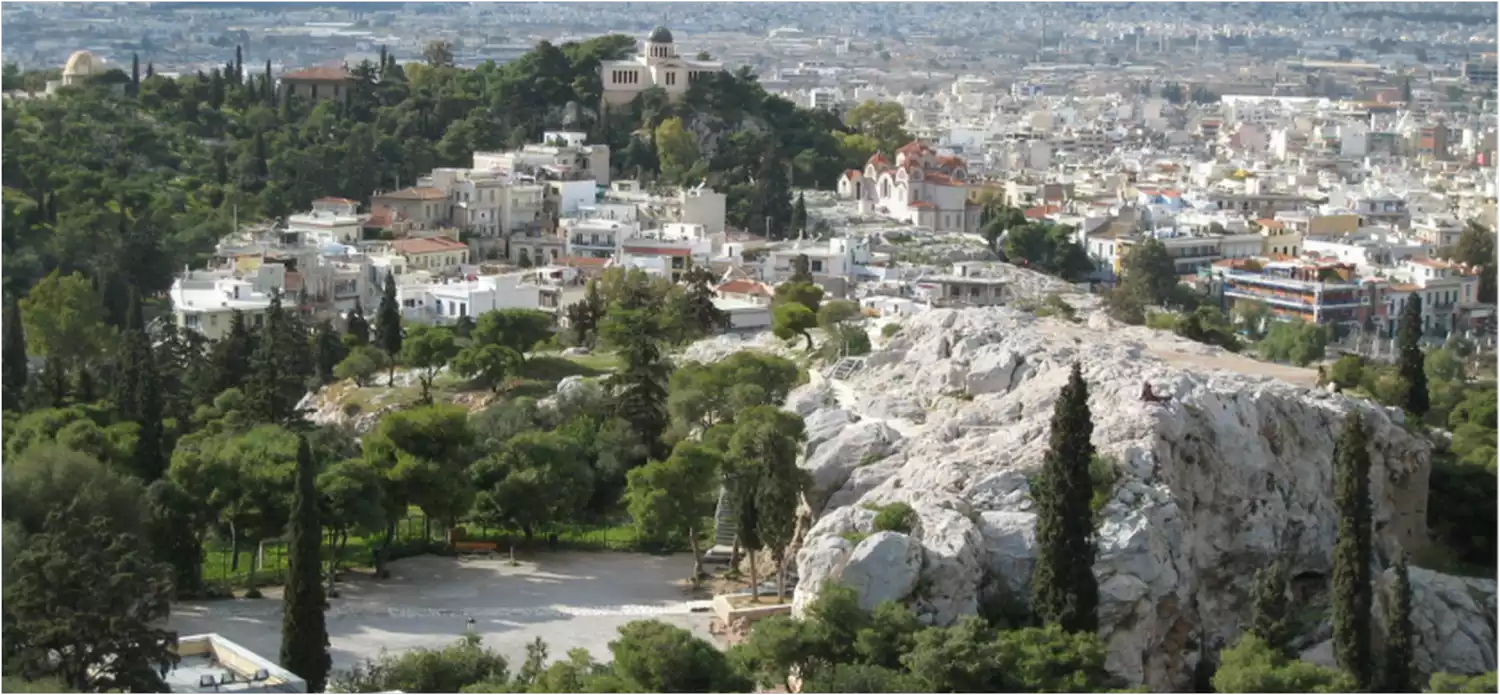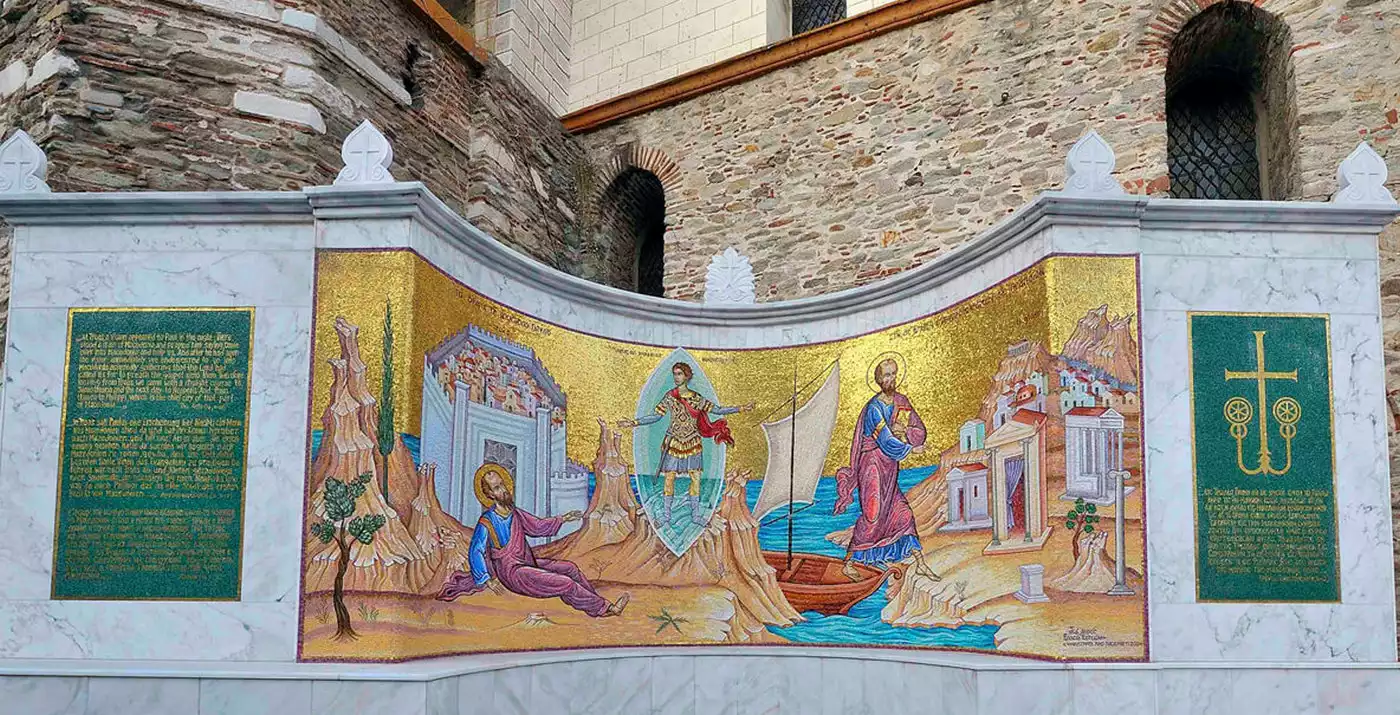
The Eastern Orthodox Church of Greece, established as an autonomous ecclesiastical entity in 1850, traces its roots back to the early Christian communities. As an integral part of the Ecumenical Patriarchate for centuries, its journey reflects a rich tapestry of theological, cultural, and political shifts. This church, embodying a profound historical and spiritual legacy, serves as a cornerstone of Eastern Orthodox Christianity.
The Foundation and Early Development
The genesis of the Eastern Orthodox Church of Greece is intertwined with the spread of Christianity in the Hellenic world. Following the apostolic missions of St. Paul and other early Christian figures, the seeds of the faith took firm root in Greek soil. The church’s early development was marked by the establishment of various dioceses and the active participation in the formulation of Christian doctrine, as evidenced in the pivotal role played during the Ecumenical Councils.
In the Byzantine era, the Greek Church, under the jurisdiction of the Ecumenical Patriarchate of Constantinople, experienced significant growth. This period saw the flourishing of monasticism, with Mount Athos emerging as a center of spiritual and theological learning. The synthesis of Hellenic culture and Christian theology during this era contributed substantially to the unique character of the Greek Orthodox tradition.
The fall of Constantinople in 1453 marked a turning point for the church in Greece. Under Ottoman rule, the church faced numerous challenges, including the suppression of religious freedoms and cultural identity. Despite these adversities, the church played a crucial role in preserving Hellenic heritage and became a symbol of resistance and hope for the Greek people.
As Greece embarked on its journey towards independence in the early 19th century, the church’s role became increasingly pivotal. The struggle for ecclesiastical autonomy from the Ecumenical Patriarchate paralleled the national liberation movement. This culminated in the formal recognition of the autocephalous status of the Eastern Orthodox Church of Greece in 1850, a landmark in its history.
This foundational period set the stage for the church’s evolution, shaping its identity and role within Greek society and the broader Orthodox world. The Eastern Orthodox Church of Greece, through its turbulent yet inspiring history, stands as a testament to resilience, faith, and the enduring power of religious and cultural identity.

The Modern Era and Societal Impact
Transitioning into the modern era, the Eastern Orthodox Church of Greece navigated through a rapidly changing landscape. This period witnessed the church’s profound influence on social, educational, and political realms within Greece. As the guardian of Hellenic Christian traditions, it played a pivotal role in shaping the national identity, particularly during the formative years of the modern Greek state.
The church’s contribution to education was particularly notable. From establishing schools to promoting Greek language and culture, it became instrumental in the intellectual revival of Greece. This involvement not only reinforced the church’s position in society but also fostered a sense of unity and national consciousness among the Greek people.
Moreover, the Eastern Orthodox Church of Greece was a critical mediator in social welfare. It established numerous philanthropic institutions, ranging from orphanages to hospitals, reflecting its commitment to the principles of Christian charity and social justice. These efforts were crucial in a nation grappling with the challenges of modernization and social change.
The 20th century also saw the church navigating through periods of political turmoil and change, from the Balkan Wars to World War II and the subsequent civil conflict in Greece. Throughout these tumultuous times, the church emerged as a symbol of stability and a beacon of hope for many Greeks, often providing spiritual and material support to those affected by the upheavals.
Theological Contributions and Ecumenical Relations
The theological contributions of the Eastern Orthodox Church of Greece have been significant, particularly in its articulation of Orthodox Christian teachings and traditions. Greek theologians and church leaders have been instrumental in interpreting the faith for contemporary times while maintaining fidelity to ancient doctrines and practices.
This period also witnessed an increased engagement of the Greek Orthodox Church in ecumenical dialogue. Striving to bridge the divide between Eastern and Western Christianity, the church participated actively in discussions aimed at fostering understanding and cooperation among different Christian traditions. These efforts were not without challenges, as the church balanced its commitment to Orthodoxy with the complexities of interfaith dialogue.
The church’s approach to theology and ecumenism has had a profound impact on Orthodox Christianity globally. Its emphasis on preserving traditional liturgical practices, coupled with a willingness to engage in modern theological discourse, has enriched the global Orthodox Christian experience. Moreover, its participation in the ecumenical movement reflects a commitment to Christian unity, a vital aspect of its mission in the contemporary world.
The Eastern Orthodox Church of Greece thus stands as a dynamic institution, deeply rooted in tradition yet responsive to the needs of the modern world. Its contributions to theology and ecumenical relations demonstrate its enduring relevance and influence in the broader Christian community.
Contemporary Challenges and Future Outlook
In the 21st century, the Eastern Orthodox Church of Greece faces new challenges and opportunities. As society becomes increasingly secularized, the church is tasked with maintaining its relevance and appeal to the younger generations. This involves addressing contemporary moral and ethical issues while preserving its rich liturgical and theological heritage.
Environmental stewardship has become a significant focus, with the church advocating for ecological responsibility based on Orthodox teachings. This engagement reflects a broader understanding of its mission, extending beyond spiritual welfare to encompass care for creation.
Another challenge is the ongoing migration crisis. The church has responded by providing humanitarian aid and advocating for the rights and dignified treatment of refugees and migrants. This response is rooted in its commitment to compassion and social justice, principles central to Orthodox Christian ethics.
Looking ahead, the Eastern Orthodox Church of Greece must navigate the complexities of a globalized world. While preserving its traditions, it also needs to engage constructively with other Christian denominations and religions, fostering mutual respect and understanding in a diverse and interconnected world.
The Eastern Orthodox Church of Greece, with its storied past and dynamic present, continues to play a vital role in the religious, cultural, and social life of Greece. Its journey from the early Christian era to the present day reflects a resilient institution, capable of adapting to changing circumstances while upholding its core principles. As it faces contemporary challenges, the church’s future lies in balancing tradition with innovation, ensuring its enduring relevance in the modern world.
References
- FitzGerald, T. (2007). The Orthodox Church. Greenwood Publishing Group.
- Hussey, J. M. (1986). The Orthodox Church in the Byzantine Empire. Oxford University Press.
- Kalaitzidis, P. (2012). Orthodoxy and Political Theology. WCC Publications.
- Meyendorff, J. (1996). Byzantine Theology: Historical Trends and Doctrinal Themes. Fordham University Press.
- Papanikolaou, A. (2013). The Mystical as Political: Democracy and Non-Radical Orthodoxy. University of Notre Dame Press.
- Ware, T. (1993). The Orthodox Church. Penguin Books.
- Yannaras, C. (2006). Orthodoxy and the West: Hellenic Self-Identity in the Modern Age. Holy Cross Orthodox Press.
